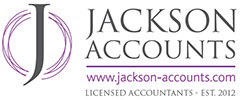Selling online - what’s HMRC’s latest guidance?
Recently published guidance which suggests that as an online seller you may have to report to HMRC even if you’re selling personal possessions you no longer want. Is this actually true?

Déjà vu?
HMRC seems slow to learn that ambiguous information has a habit of breeding unwelcome headlines and panic on social media. So after releasing “Check if you need to tell HMRC about your income from online platforms” , it quickly followed up with a press release confirming that there were no tax changes for online sellers. We’ve been here before, in early 2024, when there was a supposedly new tax for side hustles.
Vague guidance
The trouble is HMRC uses phrases such as “you may” and “unlikely” which, when you’re deciding if you need to declare income is hardly clear or transparent. On the part dealing with personal possessions there is a focus on chattels worth less than £6,000 which are indeed exempt from capital gains tax (CGT). However, there is little mention of the important exemption for wasting assets.
Wasting assets
Wasting assets are all items with a predicted lifespan of less than 50 years from the date you acquired them. This includes all machinery unless you’ve claimed business tax deductions for it. The reason these assets are exempt from CGT is because their value generally erodes over time so HMRC doesn’t expect a gain to arise.
Example. If Neo buys a case of good Bordeaux, it’s very unlikely to last 50 years even if kept well. So any profit he makes is exempt from CGT, even if it does in fact last more than 50 years. As Morpheus prefers to invest in vintage whisky with an expected life exceeding 50 years, any profit (gain) will be liable to CGT.
Machinery includes watches, clocks, shotguns and most types of vehicle, including yachts but excluding racing cars, and musical instruments.
If you frequently sell items - second-hand (other than your personal possessions) or new - you might be trading. In this situation any profit/gain you make can be liable to income tax, therefore the CGT wasting asset exemption can’t apply.
Why it matters
By 31 January 2025, online platforms such as eBay and Etsy must provide a report to HMRC and the individual where there were over 30 sales transactions in 2024 or their cumulative value exceeded £1,700. While this is aimed at those evading tax, it will also affect compliant taxpayers selling exempt personal possessions online.
Requirement to tell HMRC
For exempt gains, there is no need to tell HMRC, register for self-assessment or submit a tax return. The only exception is if the proceeds exceed £50,000 and you are already completing a self-assessment tax return for another reason.
If you make a loss from the sale of a non-exempt asset, you must notify HMRC of the details if you want to be able to use it to reduce CGT on gains made in the same or later years.
If in doubt, use the online checking tool to see if you may have anything to report.
Related Topics
-
New CGT reporting tool
Self-assessment returns aren’t set up for the change in capital gains tax (CGT) rates on the government filing system and will require a manual adjustment for 2024/25 to ensure the correct amount is paid. Why is there a problem and can a new online tool help?
-
Hidden MTD news in Spring Statement documents
Chancellor Rachel Reeves kept her pledge that there would be no more tax rises at the Spring Statement, but there are some important Making Tax Digital developments hidden away in the tax related documents. What do you need to know?
-
HMRC MTD ITSA webinar - worth a look?
Making Tax Digital will be mandatory for some traders and landlords next year. Ahead of this, the government is ramping up its guidance to help you get ready. What is the latest offering?


 This website uses both its own and third-party cookies to analyze our services and navigation on our website in order to improve its contents (analytical purposes: measure visits and sources of web traffic). The legal basis is the consent of the user, except in the case of basic cookies, which are essential to navigate this website.
This website uses both its own and third-party cookies to analyze our services and navigation on our website in order to improve its contents (analytical purposes: measure visits and sources of web traffic). The legal basis is the consent of the user, except in the case of basic cookies, which are essential to navigate this website.